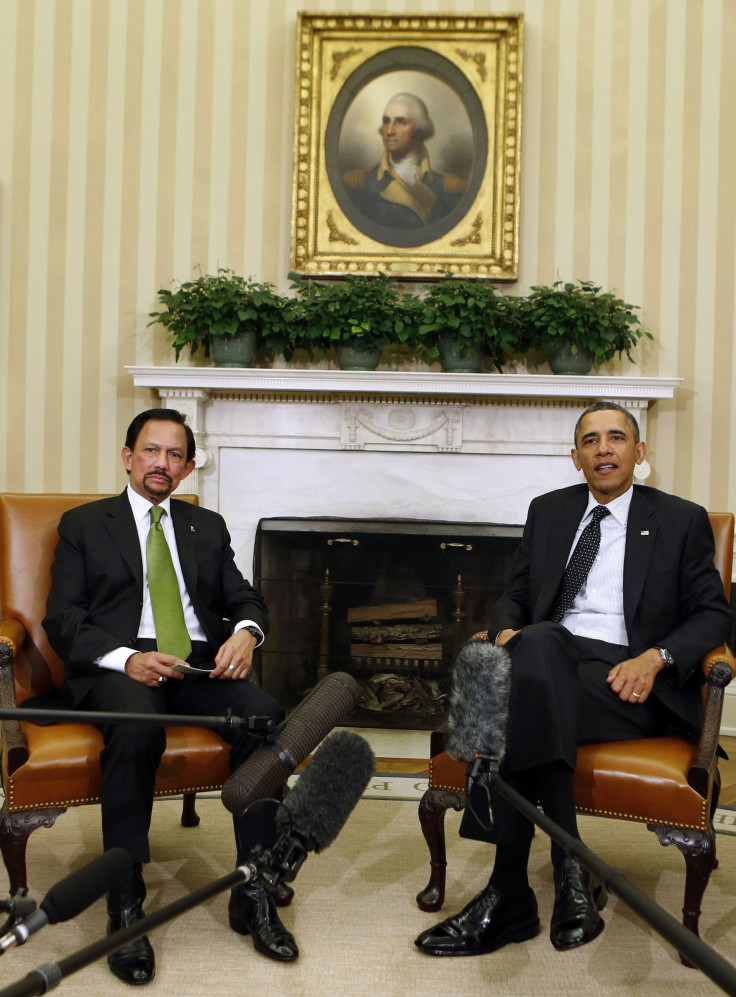Brunei Has A Solid Economy Thanks To Income From Oil And Gas Along With Steady FDI, Unlike Its ASEAN Neighbors

The tiny sultanate of Brunei has a surprisingly sound economy, thanks to a strong fiscal balance sheet due to solid income from oil and gas exports, a stable currency, low unemployment and modest, but steady investment, unlike many of its previously fast-growing, emerging Southeast Asian neighbors that now find themselves mired in economic woes.
When Ben Bernanke announced in June that U.S. policy makers may moderate their pace of bond purchases later this year, investor confidence in emerging markets reached a record low, and Southeast Asian nations that for years enjoyed unprecedented booms saw a rapid withdrawal of funds from the region. With their economies already in slowdowns before, countries like Thailand, Malaysia, Indonesia and the Philippines seem to have hit a major bump in their economic development.
Amidst the bad news, however, the economy of little-thought-of-Brunei has proven to more robust than that of the sultanate’s neighbors, according to the Invest Vine, a news outlet covering investment opportunities in Southeast Asia.
The oil and gas sector in Brunei contributes about two-thirds of the nation’s GDP, 98 percent of is exports, and 93 percent of government revenues. While over the past few years the sector has shrank due to the global economic slowdown, experts believe an increase in production can be expected to boost Brunei’s economy over the next few years as new petrochemical and refinery projects come online, according to the Oxford Business Group, an economic research firm based in the United Kingdom. GDP growth could average 5.6 percent annually over the next five years, estimated by the IMF.
While globally, oil prices continue to be volatile, the IMF said that Brunei has sufficient funds to weather any storm.
“The current high fiscal surplus, along with other fiscal reserves, should allow the government to maintain spending even if oil prices were to fall sharply,” the IMF noted, according to the Oxford Business Group. “This would lessen the impact on non-energy growth and employment.”
The sultanate has also had a history of attracting foreign investment, including a $4 billion refinery complex from China’s Zhejiang Hengyi, without seeing the fund pullout other Southeast Asian nations have experienced recently.
It has consistently ranked in the top 30 on the World Economic Forum’s Global Competitiveness Index (GCI), according to the Borneo Post, an English-language newspaper covering the Island of Borneo, where Brunei is situated.
Expatriates and foreign professionals have also rated Brunei as the best country in Southeast Asia for them to work in, giving it a perfect 100% score, according to a survey by the American Malaysian Chamber of Commerce of 475 senior executives working for U.S. companies operating in the region. Malaysia and Singapore tied for second at 94 percent satisfaction.
Brunei has put its income and solid economy to good use, with an eye on the future. The government just committed 200 million Brunei dollars ($156 million) into new research and development initiatives in key sectors such as energy, environment, food security, healthcare and health services, as well as information and communication technology to ensure the country’s long-term competitiveness, according to the Invest Vine.
© Copyright IBTimes 2024. All rights reserved.











